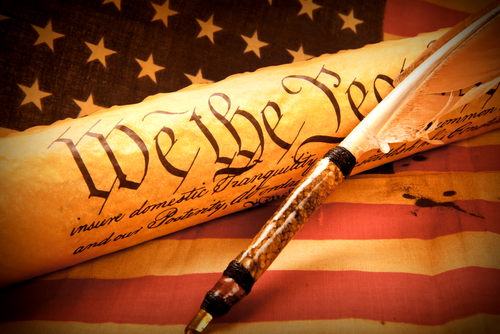Freedom of the Press
Get the world’s most fascinating discoveries delivered straight to your inbox.
You are now subscribed
Your newsletter sign-up was successful
Want to add more newsletters?
Join the club
Get full access to premium articles, exclusive features and a growing list of member rewards.
What is freedom of the press?
Freedom of the Press prohibits the government from interfering with the printing and distribution of information or opinions. In a 1938 decision, the Supreme Court defined the press as, "every sort of publication which affords a vehicle of information and opinion." Today, this includes everything from newspapers to blogs. Freedom of the press, like freedom of speech, is subject to some restrictions, such as defamation law and copyright law.
The history of this freedom goes back to the birth of mass media. As soon as the printing press was invented, officials created ways to censor it. In 1501, Pope Alexander VI issued a notice requiring printers to submit copy to church authorities before publication, in order to prevent heresy. Penalties for bypassing the censors included fines and excommunication.
In the American colonies, the defense of John Peter Zenger against libel charges in 1735 is often seen as the cornerstone of American press freedom. After the American Revolution, several states provided for freedom of the press, and the First Amendment (1791) to the U.S. Constitution declared that “Congress shall make no law … abridging the freedom of speech or of the press.” Whether these acts were intended to prohibit prosecution for seditious libel or merely to prohibit prior restraint has been a matter of controversy.
The Supreme Court has bolstered the press’s freedom is several cases. In 1964, The Supreme Court stated that when a publication involves a public figure, in order to support a suit for libel, the plaintiff bears the burden of proving that the publisher acted with "actual malice," meaning that the publisher knew of the falsity of the statement or acted with reckless disregard as to the truth of the statement – making it more difficult for individuals to sue for libel. In 1971, it upheld the publication of the Pentagon Papers, a top secret study that was conducted during the Vietnam War.
The First Amendment has not been extended to the gathering as well as the publication of news. The experience of the Vietnam War led the U.S. government to restrict the access of reporters in combat areas in subsequent military encounters. This practice, used during the 1983 invasion of Grenada and the 1991 Persian Gulf War, was bitterly resented by many reporters. In domestic affairs, although a number of states have passed shield laws, which permit journalists to refuse to disclose confidential information and sources to law-enforcement bodies, the U.S. Supreme Court has recognized no unrestricted right of press confidentiality.
Not all countries have a bill of rights or constitutional provision pertaining to freedom of the press. In 2012, Reporters without Borders listed the countries with the most free press as Finland, Norway, Estonia, the Netherlands, and Austria. The countries with the least degree of press freedom were ranked with Eritrea having the worst, followed by North Korea, Turkmenistan, Syria, Iran, and China. The United States ranked 48th on the list.
Get the world’s most fascinating discoveries delivered straight to your inbox.
Related:
 Live Science Plus
Live Science Plus











